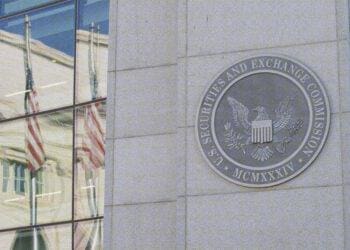Michael Volkov details the settlement between the U.S. Office of Foreign Asset Control (OFAC) and Haverly Systems, which was found to be in violation of federal sanctions.
The Treasury Department’s Office of Foreign Asset Control (OFAC) continues its enforcement run. In a recent case against Haverly Systems, Inc., the OFAC sent an important reminder to U.S. companies about compliance with the Ukraine-Russia Sectoral Sanctions Program.
Haverly paid roughly $75,000 for two violations of the Ukraine-Russia Sectoral Sanctions (SSI). In two transactions, Haverly violated Directive 2, the 90-day maturation limitation on new debt involving a designated entity – Roseneft in this case.
Rosneft and its affiliates were originally designated on the SSI List in the original Directive 2 issued on July 16, 2014, and in Directive 4 on September 12, 2014. As a result of its designation in Directive 2, U.S. persons are prohibited from engaging in conduct with Rosneft and its affiliates involving “transactions in, provision of financing for and other dealings in new debt of longer than 90 days maturity of [Rosneft], [its] property or [its] interests in property.”
Haverly did not voluntarily disclose this matter to the OFAC. The facts surrounding the violations occurred in 2015. On August 19, 2015, Haverly issued two separate invoices to Rosneft related to the licensing of software and purchase of software support services. Although the invoices originally contained payment due dates of between 30 and 70 days from the date of issuance, approximately 70 days after the issuance of the invoices, Rosneft notified Haverly that it required certain corrected tax documentation in order to make the payment. It took Haverly several months to obtain the corrected tax documentation. Following receipt of the tax documentation, Rosneft made the payment on the first invoice, which Haverly received on May 31, 2016, approximately nine months after its issuance.
The violation was identified by a financial institution involved in the transactions. From May 31, 2016 to October 27, 2016, Rosneft made four attempts to pay Haverly’s second invoice, but the financial institution rejected the transactions after determining the transaction was prohibited by OFAC’s regulations as debt of greater than 90 days maturity of an SSI entity subject to Directive 2. Haverly was notified of these rejections, including by SWIFT messages, which identified the specific sanctions violations.
Notwithstanding these notifications, Haverly made no attempt to address the sanctions issues. Haverly did not have a sanctions compliance program and did not understand the collection of the debt was prohibited. Haverly did not contact OFAC, nor seek any guidance concerning the matter. Instead, Haverly re-issued the second invoice at the direction of Roseneft and changed the dates to conform to the 90-day limitation. Haverly then received the payment from Roseneft.
In reaching the settlement, OFAC noted that:
- Haverly demonstrated reckless disregard for U.S. economic sanctions requirements by repeatedly ignoring warning signs that its conduct constituted or likely constituted a violation of OFAC regulations,
- Haverly’s management team had actual knowledge of the conduct giving rise to the apparent violations and
- Haverly did not possess a formal OFAC sanctions compliance program at the time the apparent violations occurred.
Interestingly, the OFAC noted that it would have likely approved the transactions if Haverly had sought a specific license to complete the transactions. Haverly also implemented a sanctions compliance program that included appointment of a Chief Compliance Officer and implementation of a risk-based compliance program with screening designed to review all current and future clients of Haverly for OFAC purposes.
This article was republished with permission from Michael Volkov’s blog, Corruption, Crime & Compliance.



 Michael Volkov is the CEO of The Volkov Law Group LLC, where he provides compliance, internal investigation and white collar defense services. He can be reached at
Michael Volkov is the CEO of The Volkov Law Group LLC, where he provides compliance, internal investigation and white collar defense services. He can be reached at 








